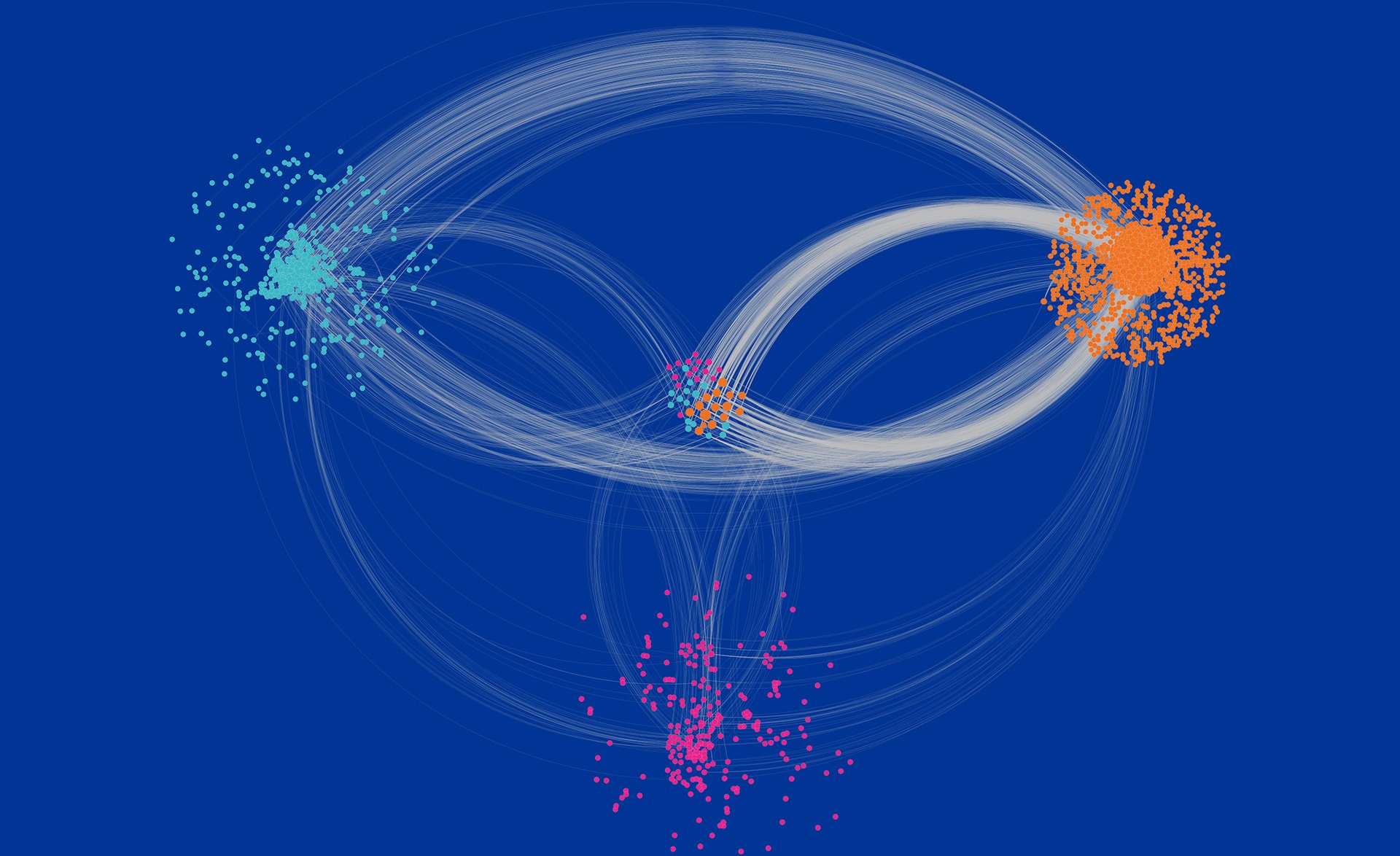
pitt research social network
science, technology, engineering and math
-
Our research collaboration network shows how Pitt researchers from different fields combine their knowledge to pursue grand research projects. Each node represents a Pitt individual who has submitted a proposal for research funding during FY 2024. The links between the nodes indicate that the connected individuals are co-investigators in a proposal. At the core of the graph, we find super connected individuals, who have partnered with an impressive number of collaborators across disciplines.
Source: Pitt Electronic Research Information System PERIS™ MyFunding
Data is current as of 07/08/2024.
Health Sciences
arts, humanities, social sciences and related fields

pitt research social network
-
Our research collaboration network shows how Pitt researchers from different fields combine their knowledge to pursue grand research projects. Each node represents a Pitt individual who has submitted a proposal for research funding during FY 2024. The links between the nodes indicate that the connected individuals are co-investigators in a proposal. At the core of the graph, we find super connected individuals, who have partnered with an impressive number of collaborators across disciplines.
Source: Pitt Electronic Research Information System PERIS™ MyFunding
Data is current as of 07/08/2024.

Research Super Connectors
Simon Watkins is a distinguished professor in the Department of Cell Biology in the School of Medicine. He is the founder and director of the Center for Biologic Imaging—one of the largest optical imaging centers in the country. Through his work in the Center for Biologic Imaging, he provides integrated, elite access to microscopy, biophotonics and imaging used for research, education and collaboration across the University.
Julie Fiez is a professor in the Department of Psychology in the Kenneth P. Dietrich School of Arts and Sciences. She uses an interdisciplinary neuroscience approach for her research on the neural basis of language processing and basic systems in the human brain. Her research group is specifically focused on how cognition can be optimized with reinforcement learning and error-correction signals from the basal ganglia and cerebellum.
James Huguley is an associate professor in the School of Social Work and chair of the Race and Youth Development Research Group at the Center on Race and Social Problems. His work revolves around culturally distinct socialization practices in Black families and their impact on outcomes of Black youth in addition to improving the educational and mental health outcomes of young people in oppressed educational contexts.

Research Super Connectors
Simon Watkins is a distinguished professor in the Department of Cell Biology in the School of Medicine. He is the founder and director of the Center for Biologic Imaging—one of the largest optical imaging centers in the country. Through his work in the Center for Biologic Imaging, he provides integrated, elite access to microscopy, biophotonics and imaging used for research, education and collaboration across the University.
Julie Fiez is a professor in the Department of Psychology in the Kenneth P. Dietrich School of Arts and Sciences. She uses an interdisciplinary neuroscience approach for her research on the neural basis of language processing and basic systems in the human brain. Her research group is specifically focused on how cognition can be optimized with reinforcement learning and error-correction signals from the basal ganglia and cerebellum.
James Huguley is an associate professor in the School of Social Work and chair of the Race and Youth Development Research Group at the Center on Race and Social Problems. His work revolves around culturally distinct socialization practices in Black families and their impact on outcomes of Black youth in addition to improving the educational and mental health outcomes of young people in oppressed educational contexts.



